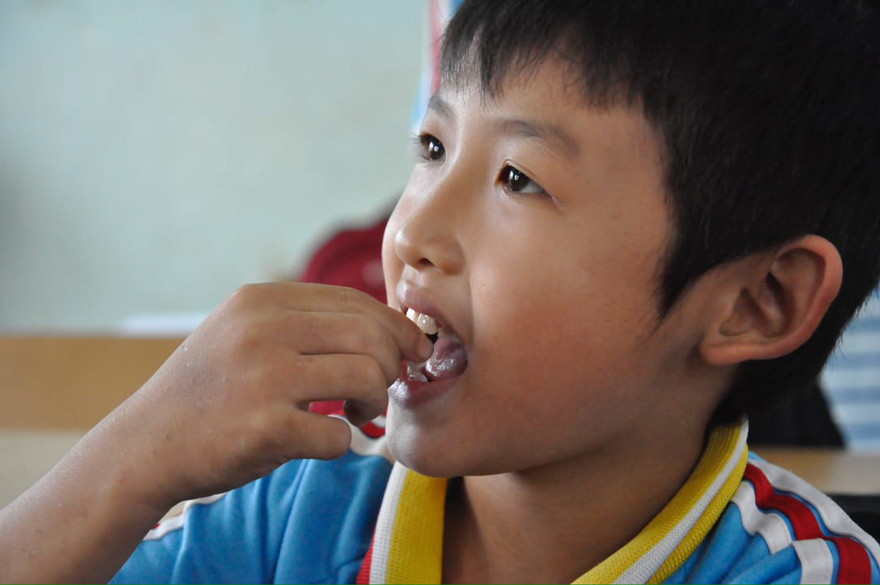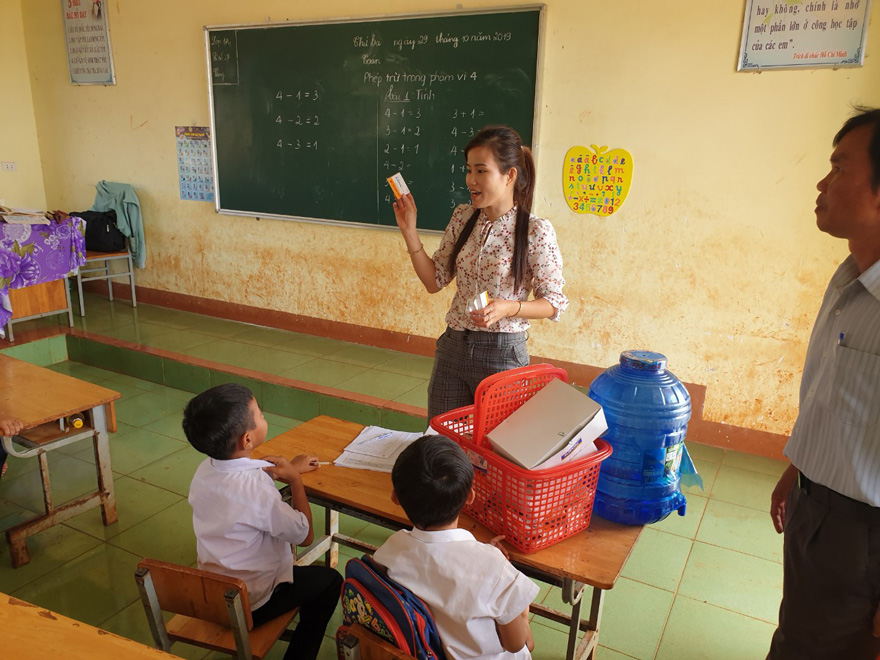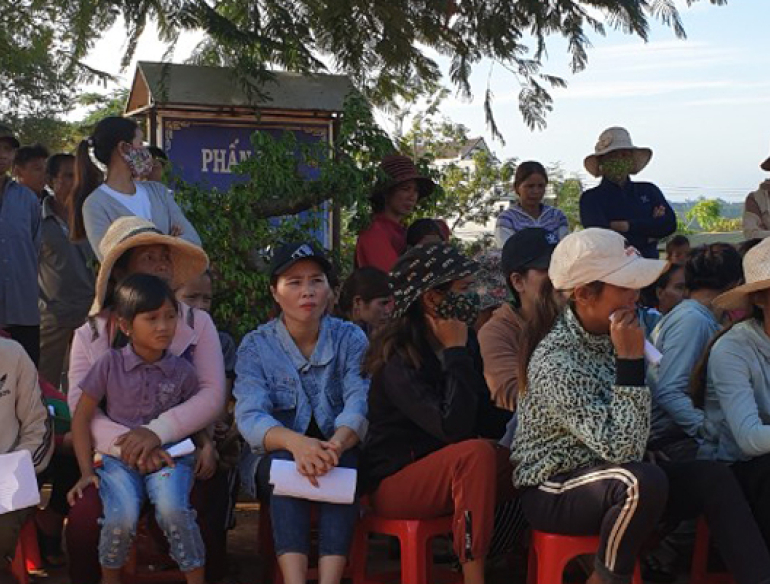As part of a growing expansion into the field of neglected tropical diseases, Kirby Institute researchers are leading a large deworming trial, the first of its kind in the region, in an effort to improve control of intestinal parasites. The research team have just completed initial data collection and have begun to roll out the study, with the aim of determining the most effective deworming method, comparing community-wide treatment with targeted school-based treatment.
The trouble with worms
Soil-transmitted helminths (STHs), more commonly known as ‘intestinal worms’, are the most prevalent of the neglected tropical diseases, a group of illnesses that primarily affect people in low income settings and contribute to perpetuating the poverty cycle. They are transmitted by worm eggs and larvae present in human faeces, which can contaminate soil in areas where sanitation is poor. It is estimated that over a billion people worldwide are infected with at least one STH.
Worm infections can be treated using deworming medications, but if left untreated, chronic and intense infections can lead to health problems including impaired physical and cognitive development and iron deficiency anaemia due to intestinal blood loss. Children and women of reproductive age are at greatest risk of these associated health problems. “We know that heavy STH infections can lead to stunting of childhood growth, and impairments in cognitive development,” says the Kirby Institute’s Dr Naomi Clarke, who is coordinating the trial. “This may lead to increased school absenteeism and poorer educational outcomes for children, making it harder for families to break the cycle of poverty, and contributing to ongoing health and social inequities.”
 A child receives deworming medication at school as part of the CoDe-STH trial.
A child receives deworming medication at school as part of the CoDe-STH trial.
CoDe-STH: Community Deworming against Soil-Transmitted Helminths
In endemic areas, control of STH infections is undertaken predominantly through regular deworming programs, targeted to at-risk groups, mainly school-aged children. These programs are usually implemented at schools, with the medications being dispensed by teachers. The World Health Organization has set a target of 75% of preschool- and school-aged children being regularly dewormed in endemic areas by 2020. In Dak Lak Province in Vietnam, school-based deworming is delivered annually by the Ministry of Health.
Kirby Institute researchers Dr Clarke and the study’s chief investigator, Associate Professor Susana Vaz Nery, have been working with local collaborators and government departments in Vietnam to develop a randomised controlled trial called CoDe-STH (Community Deworming against STH), that investigates the impact of scaling up deworming programs to entire communities. Through their study, over 100,000 doses of deworming medication will be delivered at schools and communities in Dak Lak Province.
“Our study aims to deliver and compare community-based mass deworming and the standard school-based targeted deworming”, says Dr Clarke. “We anticipate that community-wide deworming will lead to fewer reinfections among school-aged children in this setting, and ultimately improve the health of children in the region. However, there is a lack of empirical evidence supporting our prediction. This is why we’ve developed this study.”
Dak Lak province is located in the Central Highlands of Vietnam and has a population of approximately 1.9 million. The CoDe-STH trial is taking place in 64 schools and 113 ‘hamlets’, which are communities comprising of between 100 and 1,000 households, across all 13 districts. Worm infection levels are measured in school-aged children at the beginning of the study, immediately prior to deworming. Infection levels will be measured again 12 months later, in order to determine the impact of community-wide deworming, compared to school-based deworming.
An ambitious study with promise
The field teams in Vietnam, consisting of a local project manager, Dr Dinh Nguyen, 60 research staff, 64 village health staff and 216 hamlet health staff, have just completed initial data collection and delivery of deworming medications at schools and communities. “The study implementation has been very successful so far, with excellent engagement from students, parents, teachers, community health workers and local collaborators,” Associate Professor Vaz Nery said. “Over a three-week period, our teams visited all 64 schools, collected over 8,700 stool samples, and delivered approximately 21,000 doses of deworming medication to school-aged children. In the community-based deworming intervention, our teams delivered over 70,000 deworming tablets to study hamlets, with around 90% of community members receiving treatment. With a committed local workforce, and engaged communities, this intervention is promising and could have a huge impact on endemic worms in this region.”
 A member of the CoDe-STH research team explains deworming to a classroom of children at one of the study schools.
A member of the CoDe-STH research team explains deworming to a classroom of children at one of the study schools.
The future of worms in the Asia Pacific
Dr Clarke and Associate Professor Vaz Nery are confident that this scale-up will prove to be both cost-effective, and result in further decreases in STH prevalence. “We have seen a substantial increase in school-based deworming programs in the Asia-Pacific region over the last decade,” says Dr Clarke. “The WHO 2020 targets, commitments of national Ministries of Health and many partners, and drug donations from pharmaceutical companies have all contributed to this impressive progress, but as we approach 2020, policymakers are considering future targets and recommendations.”
Associate Professor Vaz Nery says currently, there is a lack of evidence from field-based research to support community-wide deworming, particularly in South East Asia. However, they are hopeful that this study will contribute to filling this evidence gap and confirm predictions about the effectiveness of a community-based approach. “We have a real opportunity to inform global policy and improve control of intestinal worm infections, to maximise the benefits for the communities where these infections are endemic,” she says.
Header Image
Parents attend a meeting with the research team to learn about the CoDe-STH trial in Dak Lak province, Vietnam
